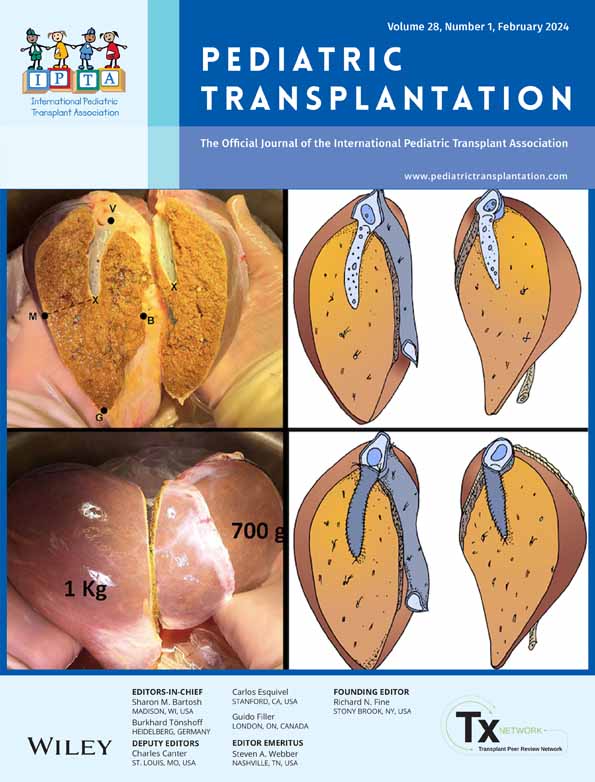Prevalence of mycophenolate mofetil discontinuation and subsequent outcomes in pediatric kidney transplant recipients: A PNRC study
Abstract
Background
Mycophenolate Mofetil (MMF) is an effective immunosuppressant used in kidney transplant recipients to prevent acute rejection. Complications such as diarrhea, leukopenia, and infections may necessitate the reduction or discontinuation of MMF. The objective of the study was to investigate the prevalence, timing, and reasons for MMF discontinuation and its association with outcomes in pediatric kidney transplant recipients.
Methods
Seven Pediatric Nephrology Research Consortium (PNRC) centers participated in a retrospective analysis of kidney transplant recipients <21 years of age. Characteristics and outcomes of patients in whom MMF was discontinued were compared to those who continued taking MMF throughout the first 2 years post-transplant.
Results
The study population included 288 participants (mean age 11.2 years) from 7 North American transplant centers. MMF was discontinued in 93/288 (32%) of participants. Common reasons for discontinuation included infections (35%), diarrhea (32%), leukopenia (15%), and others (18%). Increased cumulative alloimmunity (55% vs. 42%, p = .02), increased number of hospitalizations (82% vs. 67%, p = .01), and viral replications (79% vs. 47%, p < .0001) were observed in the MMF discontinuation group compared to the continuation group. Greater eGFR decline also occurred in the MMF discontinuation group over 2 years of follow-up (−7 vs. −1 mL/min/1.73 m2, p = .05).
Conclusions
Almost a third of pediatric kidney transplant recipients who begin MMF for maintenance immunosuppression have it discontinued within the first 2 years post-transplant, and this subset of patients is more likely to experience adverse outcomes. New strategies are needed to manage MMF therapy and improve post-transplant outcomes.
Open Research
DATA AVAILABILITY STATEMENT
The data that support the findings of this study are available from the corresponding author upon reasonable request.




